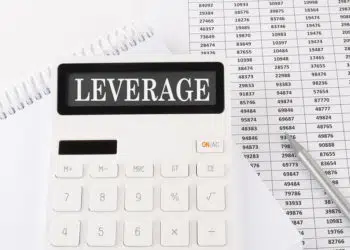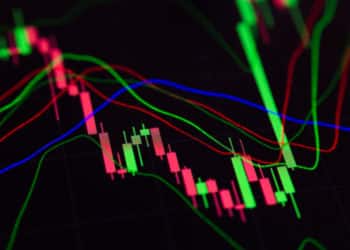As the cliché goes, it takes money to make money. Ultimately, capital is the oxygen of any business, and forex is no exception. One of the unique elements of forex is the low barrier to entry. Unlike other financial markets such as some stocks, forex requires tremendously less as a starting investment mainly because of the high leverage.
With some brokers requiring $0 and with the addition of special cent accounts allowing for nano lot sizes, currencies are a flexible playing field. While all this sounds wonderful, is there a consensus over the specific monetary value traders should start with in live trading?
Are there any differences in emotional discipline and performance between trading with $1000 and $10,000? And how does one know the right amount to start with? Ultimately, it comes down to one’s disposable income and experience, while avoiding some typical mistakes along the way.
The importance of risking disposable income
As briefly mentioned, the leverage in forex is a benefit when used correctly. It allows for traders to open larger positions with a smaller deposit. As a new trader who has just begun their live trading journey, the first element to consider is the risk capital.
One of the old investing adages of ‘only invest money you’re prepared to lose’ rings true in forex, and this is the first step at deciding the starting balance. A new trader has to consider how much disposable income they have.
In simple terms, this money is what is left over after one has wholly covered all their living expenses, savings (if any), and taxes. Someone already with a high net worth can quickly put down a five-figure balance, while the cash-strapped investor could only realistically afford a few hundred.
The importance of utilizing discretionary funds cannot be understated. It’s easy to understand many losing traders are under-capitalized from the get-go as they use higher leverage than what their accounts would generally handle.
Another critical cause is the emotions they may put on their balance. If someone is trading with funds, they need to live in the hopes of substantial gains. It can be a psychological battle when this money is on the line, leading to many severe money management mistakes.
The importance of experience
After establishing the disposable income, a trader needs to consider their experience. One of the common errors at the beginning of a trader’s journey is risking too much too soon. While someone with a sizable net worth could easily afford four or five figures from day one, this isn’t necessarily a wise decision if they lack proficiency and confidence.
Naturally, humans are attracted to large numbers and will react differently to a $10,000 account compared to $1000. It’s easy to tell the gains on the former, even with a relatively small percentage risk, would be much higher than on the latter case.
However, if a trader’s risk management, emotional and strategic skills are low, the size of their capital makes no difference; this is where experience comes in. While there is merit to the notion of a bigger balance affecting how frequently someone might trade, this is still no substitute for expertise.
Unfortunately, there is no solid number for when a trader is confident enough and feels ready; for some, that moment might come in a year, and for others, it could take three. To find a balance, it’s always best to start with a small account while gaining experience along the way.
This allows traders wiggle room to make any possible mistakes without affecting their net worth considerably.
Avoiding some of the mistakes traders make with capitalization
Aside from not using disposable income and risking too much too soon, here are other slip-ups most traders make with trading capital that one should avoid.
- Overtrading: Generally, traders with smaller accounts are prone to overtrading because of the inherent desire to make noticeable gains with their balance. This sentiment goes back to the point about capital size.
While traders with a higher net worth naturally encounter less stress, it doesn’t automatically make them better at trading the markets.
- Having full-time trading aspirations too early: Most traders dream of trading full-time, but too many aspire to this goal without building a solidly profitable track record first.
The chance of someone making a decent living in forex depends, again, on their account size and experience. Failing to recognize these factors makes one vulnerable to having unrealistic expectations.
Therefore, it’s less stressful and more feasible for inexperienced ones to trade part-time or for supplementary income and steadily build up their equity over the years.
- Not thinking long-term about the growth of their account: Lastly, regardless of the size of trading capital, many traders simply lack a long-term outlook with growing their accounts because of instant gratification.
Some argue that compounding is trickier than at face value. Nonetheless, it is feasible to achieve substantial gains by being consistently profitable over several years, allowing for large withdrawals.
Final word
There is no recommended starting capital amount. Though the numerical value is crucial, investors trading live for the first time should consider other factors. A so-called million-dollar trader isn’t automatically guaranteed to perform consistently in the markets without doing the ‘hard yards.’
After acquiring the disposable income, mastery and having a long-term outlook comes into play. The goal of any trader is to make sizeable and sustainable profits, but this vision should come with realistic steps adopting solid risk management and possessing the right experience.







